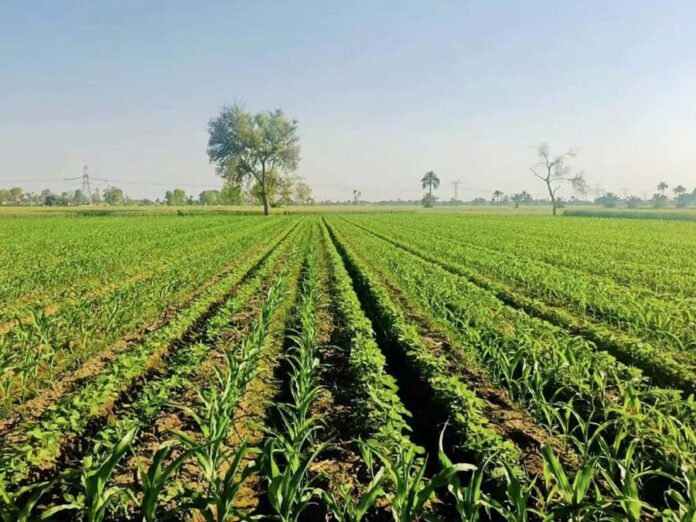The spring sowing of maize-soybean strip intercropping technology, a high-yielding solution from China and optimized based on Pakistan’s local conditions by young Pakistani scientists, is just completed in Pakistan. According to the National Research Center of Intercropping (NRCI), the Islamia University of Bahawalpur (IUB), the total area under cultivation with this technology this season is more than 1,100 acres across the country.
Spring sowing of Sino maize-soybean intercropping tech completed to stimulate local oilseed production
The Chinese maize-soybean strip intercropping technology was introduced to Pakistan in 2018 by Dr. Muhammad Ali Raza, a post-doc who graduated from Sichuan Agricultural University (SAU), China and now acts as the Director of NRCI. Compared with the 400-acre land in 2022 spring, the demonstration area this season is increased by 175% year-on-year, a giant leap indeed.
“This year, we have arranged demonstrations in three provinces i.e. Punjab, Sindh, and KPK, and the total number of demonstrations arranged by NRCI is 71,” Dr. Muhammad Ali Raza told the reporter.
More specifically, in Punjab, maize-soybean strip intercropping trials are being carried out at 50 different locations, including Khairpur Tammewali, Bahawalpur, Pakpattan, Vehari, Gojra, Sheikhupura, Layyah, Loudhran, etc. In Sindh, they have arranged 15 demonstrations trials at Badin, Hydrabad, Tandojam, Jam Shoro, etc. In KPK, 6 demonstrations have been arranged at Charsada, Swabi, and Mardan.
Remarkably, it’s learned that over 600 Pakistani farmers have contacted the scientists of NRCI through phone/online to inquire about the possibilities of using maize-soybean strip intercropping technology on their own land.
“These trials will play a significant role in raising awareness of this intercropping system as well as its benefits among farmers and policymakers,” Dr. Muhammad Ali Raza said. Besides maize and soybean, various kinds of crops such as wheat, sugarcane, rapeseed, clover and chickpea are also being included in the intercropping research under NRCI, which shows the local scientists’ ambition to improve crop yields and soil productivity in Pakistan.


